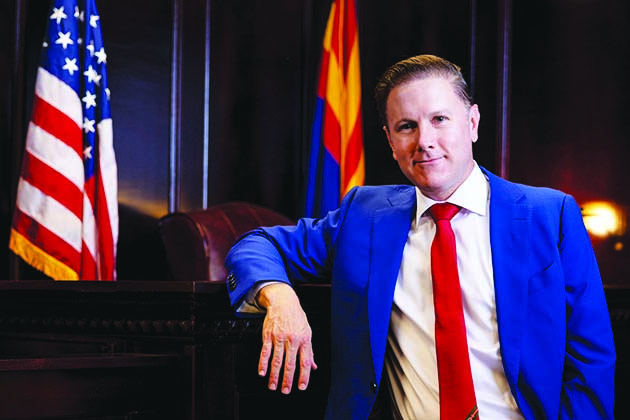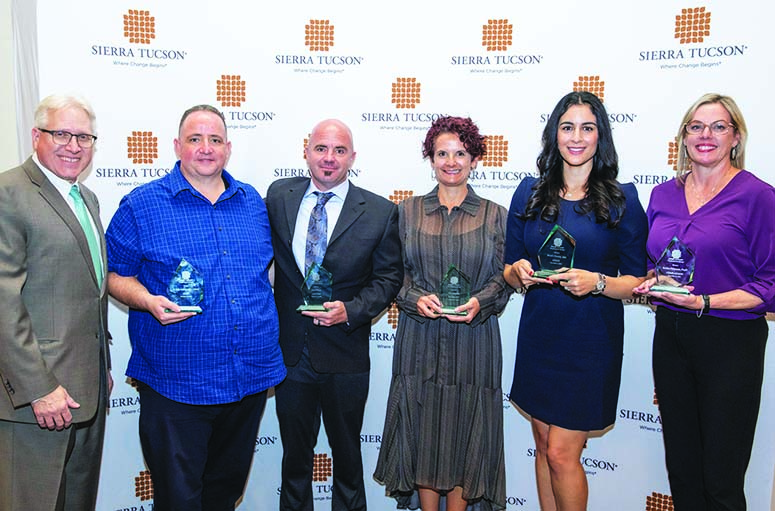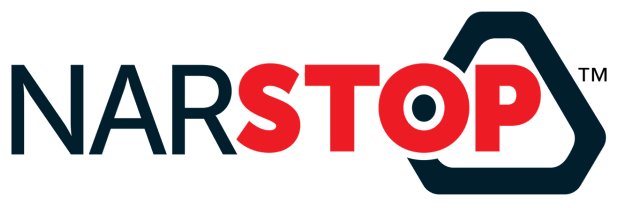By Allen Nohre, Terros
“The road to Recovery often goes through the little town of Slip, the bigger city of Relapse, towns and cities that are sometimes visited more than once.”
The recovery from addiction is complicated and I wanted to learn more about the journey from relapse to recovery. I decided the best way was to listen to people who have taken the journey. Sarah and Marie (not their real names) openly shared their stories with me. I learned that the experiences are sometimes harrowing and no two journeys are alike. MapQuest doesn’t provide directions or shortcuts. The road to Recovery often goes through the little town of Slip, the bigger city of Relapse, towns and cities that are sometimes visited more than once, before arriving for a long stay in Recovery. Every person’s trip to Recovery is unique but the paradox is that we can still learn and grow from these journeys and especially from Sarah and Marie because we are all seeking to improve our lives.
Sarah
Before I met Sarah, I had some erroneous ideas about addiction and relapse. I assumed a relapse was a slip back to the same old behavior after a period of abstinence. Sarah, a successful professional woman, began recovering from her excessive use of drugs and alcohol twenty-eight years ago. With the help of intensive outpatient treatment, Alcoholics Anonymous and her recovery program, she stopped using alcohol and drugs and has never used again. But she did relapse after all that time. How could that be? She explained it. “I switched addictions and gambling became my drug of choice. I gambled during my years of not using alcohol or drugs and I thought I had it under control. I would go to Vegas and Laughlin, as well as local casinos. Gradually I became obsessed with gambling. The high I got when I won money at the slot machines was the same wonderful high I felt from alcohol and drugs years ago as a teenager and young woman.”
Relapse Was Building
The emergence of Sarah’s new addiction didn’t happen by coincidence. “My relapse into gambling began when I stopped following my drug and alcohol recovery program. I wasn’t using, but I wasn’t doing those things critically important for me to live a life of recovery. I kept my gambling obsession a secret, stopped talking to my sponsor, quit going to recovery groups and, most importantly, I wasn’t honest with myself or anyone else. I was clean and sober from drugs and alcohol, but I was white- knuckling it and I wasn’t in real recovery. I ignored the things that made my recovery possible and because of my addictive personality, my gambling spiraled on me.”
Sarah financed her gambling with payday loans, credit cards and cleverly orchestrated it so that she had extra money in her paycheck by decreasing her withholding taxes. She managed to keep her job, pay her rent and other bills, but she was drowning in debt.
The Turning Point: Walk of Shame from the Casino
Gambling ended for Sarah when her debts and dishonesty drove her to her knees. She describes what she calls, “My loser walk from the casino to my car for the last time.” She had seven payday loans, credit card debts and owed the federal government $25,000 in back taxes. It was time for a new recovery. Sarah began her recovery from her relapse by starting an intensive outpatient treatment program. She went to Gamblers Anonymous, found a new sponsor, attended a women’s support group and returned to a substance abuse recovery group. “My original sobriety date was twenty-eight years ago. My new sobriety date, the one that really counts, is four years ago.”
To reinforce her new behavior, Sarah officially banned herself from casinos by voluntarily registering for “self-exclusion” with the Arizona Department of Gaming making it illegal for her to be in a casino. She said, “I could be arrested for trespassing in a casino, even if I only went there for the crab legs I so enjoy.”
Typical Relapse?
I learned more about relapse and recovery when I said to Sarah, “Your relapse is not typical.” She emphatically disagreed with me saying, “Yes, it is typical. Addiction is not about drugs. It is about your mind, your mind’s craziness and its obsession to get high with your next drug or your next one hundred dollars. My thoughts controlled me like a monkey on my back.”
And there is more. One year into her current recovery program, Sarah decided to deal with yet another addiction — food. “I ate for pleasure and to fill the void.” She was greatly overweight. She is now a hundred pounds lighter and besides being much healthier, she feels great, looks great and likes the freedom of making good eating choices.
Sarah’s relapse was a painful and costly setback for her, but she is an example of how a person can get back on track in the direction of positive change. She is an inspiration for those who have setbacks by showing us that failure can be temporary.
Preventing Relapse: Triggers
Relapse prevention is an important focus of TERROS treatment programs. One of the relapse prevention strategies is identification of “triggers.” A trigger can be internal emotion like anxiety or depression that historically leads to destructive behavior. Or, a trigger can be something external that creates an irresistible temptation. The addict’s goal is to have insight into the catalysts and learn to avoid them, or at least, manage them.
Sarah avoids triggers that are a potential problem for her. As innocent as it might seem, she doesn’t participate in raffles, no matter how good the cause. She doesn’t buy lottery tickets and she has taken action to prevent going to a casino, even if only for those delicious crab legs.
Do You Worry About Relapse?
I asked Sarah if she thinks about relapse. She said, “Yes, I think it is important to remember where I’ve come from and the pain I experienced. Relapse is a possibility. It is the reality I live with and I’m doing what it takes to prevent it. I don’t believe thinking objectively about relapse increases the possibility it will happen. Stopping my recovery program is what will increase my probability of reverting to old behavior.”
The Good Life of Recovery
Sarah is enjoying her life of recovery and her freedom from her addictions. The seven payday loans are paid off, she pays the balance every month on her one credit card and she is on schedule with a payment plan for her back taxes. “My life is so different. It’s fun to get up in the morning, looking forward to the day and enjoying the people I work with. I have regained my spirituality and I am so grateful that every day is an opportunity to grow.”
Sarah recently turned 60. She sent out a birthday party invitation that said, “I am celebrating my birthday because I celebrate you.” Ninety people came to her party and celebrated with Sarah.
Marie’s Trip to Recovery
Marie is in her mid-thirties, a married mother with three boys and holds down a full-time job. Before she arrived in Recovery, she spent some time in Slip and Relapse as well as a place called Prostitution. It has been a long and difficult trip but she now lives happily in Recovery. When Marie was a young girl, her mother was in the throes of her own drug addiction and basically abandoned Marie and left her homeless.
As she recalls, “Wherever I stayed wasn’t for long. When I was seventeen my mother brought me to a house where there were drug users and women who were prostituting. I was introduced to hard drugs and prostitution and that is what I did for the next five years.”
“I call it what it is”
Marie says that not having a home, using hard drugs and prostitution was the seamless fabric of her addiction. “When I talk about my life, the hardest thing to say out loud is my prostituting.” However, Marie doesn’t deny, minimize or excuse her behavior because she has discovered honesty is healthy. She calls her behavior for what it is and doesn’t use euphemisms like “sex worker” or “escort” to minimize it or make it sound better.
The Turning Point
I asked Marie, “What got you into recovery the first time?” She said, “My son.” After her son was born, Marie ended up in jail for possession of drugs at the age of twenty-two. Child Protective Services became involved and Marie was released from jail on the condition that she attend treatment. After completing 30 days of residential treatment, she was fortunately accepted into a women’s shelter where she was also able to live with her baby boy and continue with treatment. She says, “I was twenty-two and had no life-skills whatsoever, although I did get my GED when I was sixteen.”
Marie met a man she liked when she was in treatment. They were married for five years and had two sons. She said, “It was a rehab romance but we were not a good mix. Our marriage was violent. He was using and I was isolated and depressed at home with my three sons. I had five brief slips, during our five years of marriage, but no full-blown relapse until I started working at a bar.”
Conditions Ripe for Relapse
Marie’s internal condition of depression made her vulnerable to again use drugs. Like Sarah, she had also stopped working her recovery program. Then Marie added a risky external situation that was her downfall.
She took a job as a waitress in the bar where her husband hung out, an overall high-risk situation for relapse. She started doing “shift drinks” with the staff after the bar closed and then she accepted an invitation from a co-worker to snort cocaine. Soon she was smoking meth and had fallen into a full blown relapse.
Marie has a strong memory of important dates during the next twelve horrendous months. She left her home, husband and kids in December 2004. Marie continued to use drugs, stayed with her Mom, who, amazingly, was now in recovery and had four years of sobriety. “To pay my bills, including lawyer’s fees for my divorce, I earned money on the streets.” Her oldest son was living with her mother and the other two boys were living with their father.
“I had walked out on everyone. On Halloween in 2005, it even got worse. I hadn’t been using crack because it is my downfall. For me it is the devil. But I did it. The next two weeks were the longest and most anguishing two weeks of my life. I felt terribly guilty that I was doing to my children what my mother did to me – abandoning them. I think my determination to not repeat my mother’s mistakes finally became strong enough to motivate me to do something. With the help of a girlfriend, I applied for admission to a halfway house. The halfway house said they would call me when they had a bed.”
“On November 11th, I had run out of dope and fallen asleep when the phone woke me up. A lady said they had bed for me at the halfway house and wanted to know if I could be there by four o’clock. I knew they had a thirty-six hour sober requirement so I told her I was only eighteen hours sober. Still, the lady asked me if I could be there at four o’clock and I was. The next day, November 12, 2005, my second day at the halfway house, is my sobriety date.” For nearly eight years, without a visit to the town of Slip, the city of Relapse, or the place of Prostitution, that date continues to be both a landmark and a shining beacon for Marie.
The Fear of Relapse
As I had asked Sarah, I also asked Marie if she fears she might relapse. She said, “No I don’t. I can’t live in both fear and faith. It has to be one of the other. If I am fearful it is because I am not trusting God. When I start to be fearful I pray and ask what God wants. I trust that God has brought me to where I am and God is not going to let me fall on my face.”
Marie says her spiritual journey and connection with God began when she was in the halfway house and embraced the Twelve Steps of Alcoholic Anonymous. She says she found a higher power of her own creation and she likes the acronym for God, “Good Orderly Direction,” which is often an alternative interpretation.
Marie’s Relapse Prevention
Marie’s ongoing recovery is not luck or a fluke. She has built connections with healthy people and a framework of “good orderly direction” that includes:
Attending a three-hour Celebrate Recovery meeting once a week.
Enjoying her daily talks with her sponsor.
Going to church every Sunday.
Valuing her challenging and rewarding full-time job helping substance-abusing parents restore their families.
What is Most Important for Preventing Relapse?
I asked Marie, “Of all of the things you are doing to live a healthy life, what one thing is the most important?”
Without hesitation, she said, “My relationship with God.” Sarah’s answer to the same question is, “My spirituality is my most important prevention of relapse. It is not traditional religion. It is my private connection with God and with who I am and who I want to be.”
People like Sarah and Marie, and thousands of others who know the journey, have a wealth of knowledge gained in the school of experience. When they share their experience, they open themselves to us and we get a glimpse of their conflicts and triumphs along the road to recovery. By listening to them we can apply their lessons to our lives.
Allen Nohre is a writer for TERROS. He has held senior management positions with healthcare companies in Minneapolis, Chicago and Phoenix.TERROS is a healthcare organization providing life solutions for people, families and communities. TERROS offers alcohol, drug, mental health and primary medical care services and HIV and substance abuse prevention.
The TERROS Call Center is the go to place if you need information about TERROS programs and services, scheduling an appointment or assistance contacting any TERROS site, call 602-685-6000 ext. 1950, Monday through Friday from 8:00 AM-5:00 PM.
If you have a behavioral health emergency, please call 1-800-631-1314 or 602-222-9444.

































